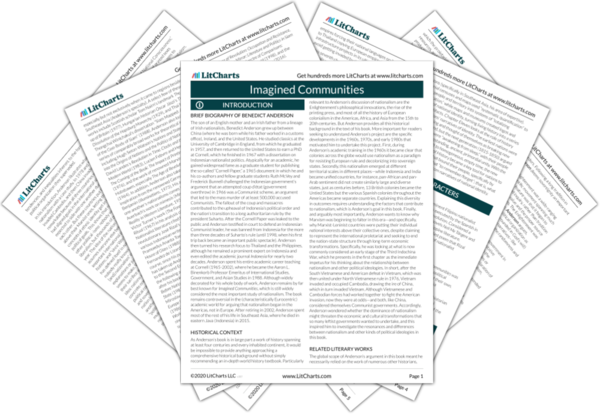Previous
Liberalism
|
Previous
Liberalism
|
Sovereignty Term Analysis |
Next
The Enlightenment
|
In an anthropological spirit, then, I propose the following definition of the nation: it is an imagined political community—and imagined as both inherently limited and sovereign.

Unlock explanations and citation info for this and every other Imagined Communities quote.
Plus so much more...
Get LitCharts A+